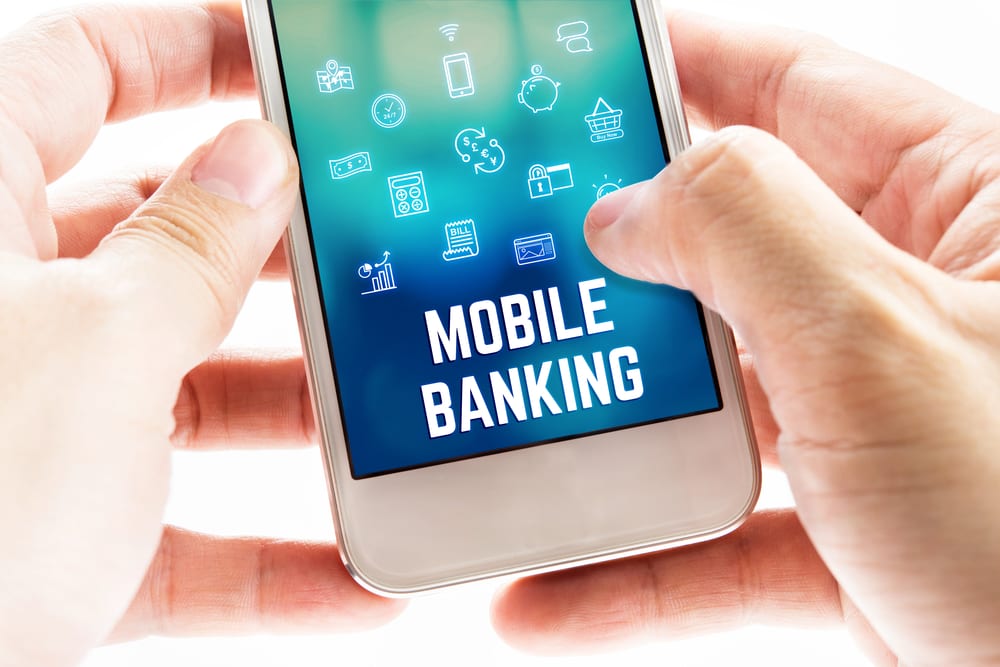The Intersection Of Banking And Technology
In recent years, the banking industry has seen a significant shift towards the integration of technology into its operations. From mobile banking to artificial intelligence, the use of banking and technologyhas transformed the way we manage our finances. In this article, we will explore the various ways in which technology has impacted the banking industry.
Mobile Banking
One of the most significant technological advancements in the banking industry has been the rise of mobile banking. Mobile bankingallows customers to access their account information, transfer money, and pay bills from their mobile devices. This technology has made banking more convenient and accessible for customers, as they can perform these tasks from anywhere at any time.
Mobile banking has also led to the development of new financial services such as mobile wallets and peer-to-peer payments. These services allow customers to pay for goods and services using their mobile devices, eliminating the need for cash or credit cards.
Online Banking
Online banking has been around for a while, but its importance has increased in recent years. Online banking allows customers to manage their accounts, transfer money, and pay bills through the internet. This technology has made banking more efficient for both customers and banks, as it reduces the need for paper-based transactions.
Online banking has also led to the development of new financial products such as online-only banks and robo-advisors. These products offer customers a low-cost alternative to traditional banking servicesand investment advice.
Artificial Intelligence
Artificial intelligence (AI) is another technological advancement that has impacted the banking industry. AI can be used for a wide range of applications in banking, including fraud detection, customer service, and risk management.
AI-powered chatbots have become increasingly popular in banking, as they provide customers with instant assistance and support. These chatbots can answer frequently asked questions, provide guidance on banking products and services, and even process transactions.
AI is also being used to detect and prevent fraud. By analyzing large amounts of data, AI algorithms can identify suspicious transactions and flag them for further investigation.
Blockchain
Blockchain technology is another technological advancement that has impacted the banking industry. Blockchain is a distributed ledger technology that allows for secure, transparent, and tamper-proof transactions.
Blockchain can be used for a wide range of applications in banking, including cross-border payments, trade finance, and identity verification. Blockchain-based solutions can significantly reduce the time and cost associated with these processes, while also improving their security and efficiency.
Challenges And Risks
While technology has undoubtedly brought many benefits to the banking industry, it has also introduced new challenges and risks. Cybersecurity is one of the most significant risks associated with the use of technology in banking. Cyberattacks can result in the theft of sensitive customer data and financial information, as well as the disruption of banking services.
Another challenge is the potential for technology to widen the digital divide. While many customers have embraced mobile and online banking, there are still many who do not have access to these services due to a lack of technology or digital literacy. This can result in financial exclusion and further widen the gap between the "banked" and "unbanked" populations.
Finally, there is the risk that technology may lead to the displacement of human workers in the banking industry. While AI-powered chatbots and other technologies can provide customers with instant assistance, they cannot replace the personal touch of a human banker.
The Future Of Banking And Technology
Looking to the future, we can expect to see even more significant advancements in technology in the banking industry. The rise of open banking, which allows third-party providers to access customer data and create new financial services, is one such development. This will enable customers to manage their finances more holistically, with all of their financial information in one place.
We can also expect to see more widespread use of AI and machine learning in banking. This will allow banks to analyze large amounts of data and gain valuable insights into customer behavior and preferences.
Finally, blockchain is expected to play an increasingly important role in the banking industry. As more banks and financial institutions adopt blockchain-based solutions, we can expect to see faster, cheaper, and more secure financial transactions.
Implications For Customers
The integration of technology into banking has significant implications for customers. One of the most significant benefits is increased convenience. With mobile and online banking, customers can access their accounts and manage their finances from anywhere at any time. This has eliminated the need for physical branch visits, saving customers time and effort.
Technology has also led to the development of new financial products and services. For example, mobile wallets and peer-to-peer payments have made it easier for customers to pay for goods and services without the need for cash or credit cards, you can learn about the technology behind bank cardsin this article from bingepost. Robo-advisors and online-only banks have also provided customers with low-cost alternatives to traditional banking services and investment advice.
However, customers also need to be aware of the risks associated with the use of technology in banking. Cybersecurity threats are a significant concern, and customers must take steps to protect their personal and financial information from cyberattacks. Additionally, customers must be vigilant when using mobile and online banking services, as scams and phishing attempts can be prevalent.
Implications For Banks
For banks, the integration of technology has brought about both opportunities and challenges. On the one hand, technology has allowed banks to streamline their operations and reduce costs. Mobile and online banking, for example, have reduced the need for physical branches, saving banks money on rent, utilities, and staffing costs.
On the other hand, the use of technology has also introduced new risks and challenges for banks. Cybersecurity threats are a significant concern, and banks must invest heavily in cybersecurity measures to protect their customers' information. Additionally, banks must be aware of the potential for technology to widen the digital divide and must take steps to ensure that all customers have access to banking services.
People Also Ask
What Is The Role Of Technology In Banking?
Technology has revolutionized the banking industry by introducing new ways to interact with customers, streamline internal processes, and reduce costs. The role of technology in banking includes:
- Enabling customers to access their accounts and manage their finances remotely through mobile and online banking.
- Automating various banking processes to reduce manual effort, errors, and costs.
- Providing customers with new financial products and services, such as digital wallets and robo-advisors.
- Enhancing security measures to protect customers' personal and financial data from cyber threats.
- Improving data analysis capabilities to enhance decision-making and identify patterns and trends in customer behavior.
What Technologies Are Impacting Banking?
Several technologies are impacting the banking industry, including:
- Artificial Intelligence(AI) and machine learning (ML):These technologies are being used to automate various processes, such as customer service, fraud detection, and underwriting, to provide personalized recommendations and insights to customers, and to identify patterns and trends in customer behavior.
- Blockchain:This technology is being used to create secure, tamper-proof, and transparent records of transactions, reducing the need for intermediaries and providing a more efficient way of transferring value.
- Internet of Things(IoT):IoT devices, such as sensors and wearables, are being used to collect customer data, which can be used to provide personalized recommendations and enhance customer experience.
- Cloud Computing:Cloud technology is being used to store and process data, reducing the need for physical infrastructure and enabling banks to scale their operations easily.
- Biometric authentication:Biometric authentication methods, such as fingerprint and facial recognition, are being used to enhance security and provide customers with a more convenient way to access their accounts.
What Technology Is Used In The Banking Industry?
The banking industry uses various technologies, including:
- Core banking systems: These are the systems that banks use to manage their operations, such as opening and closing accounts, processing transactions, and managing customer information.
- Mobile and online banking platforms:These platforms enable customers to access their accounts, manage their finances, and perform transactions from anywhere, at any time.
- Payment systems:These systems are used to process payments, such as credit card transactions, wire transfers, and peer-to-peer payments.
- Automated Teller Machines (ATMs):ATMs are used by customers to perform transactions, such as cash withdrawals and deposits, without visiting a physical branch.
- Data analytics tools:These tools are used to analyze customer data, identify patterns and trends in customer behavior, and provide insights to improve customer experience and increase revenue.
Conclusion
In conclusion, the intersection of banking and technology has brought about significant changes in the way we manage our finances. While there are certainly risks and challenges associated with the use of technology in banking, the benefits are clear. As technology continues to evolve, we can expect to see even more exciting innovations in the banking industry, which will make banking more convenient, efficient, and secure for customers.


